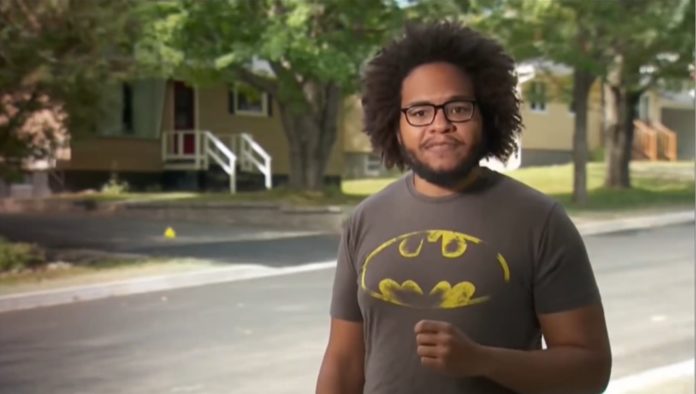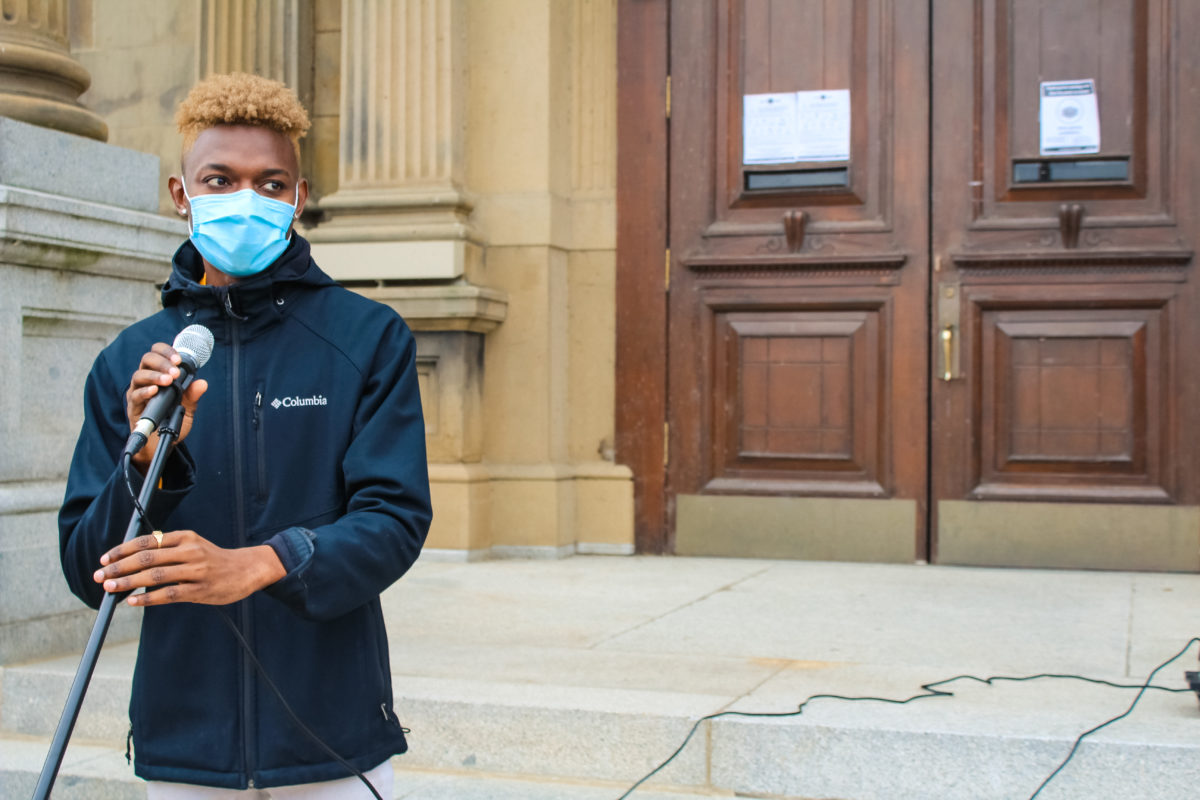
Last year, Thandiwe McCarthy was on a path of self-discovery as a Black man. The University of New Brunswick graduate found solitude in writing and poetry. He said his mother had a shelf-full of books to read, including ones on Black history.
One of the books she gave him was The Blacks in New Brunswick, a 60-page recounting of the history of Black people in the province.
“It’s almost like I just realized I was Black last year,” said McCarthy. “I was astounded by the systemic racism that was right here in New Brunswick.”
With few records of Black history in New Brunswick, McCarthy said he asked himself why this near-50-year-old book was out of print. This question became more apparent with this year’s Black Lives Matter protests.
McCarthy decided to act. He discovered the book was written by the late William Spray, a former history professor at St. Thomas University who died in 2017. With a quick email, McCarthy and Black Lives Matter Fredericton kicked off a project partnered with STU to re-publish Spray’s work.
“[If] we really want to educate people on Black history, we need foundational documents,” said McCarthy.
The Blacks in New Brunswick will be released sometime in mid-January, weeks before Black History Month. It will feature a new book cover and a re-written introduction.

‘We have proof’: Systemic racism in N.B.
Growing up in Woodstock, McCarthy said people thought he was an immigrant. He was one of two Black people in his elementary school, the other was his cousin. When his mother told him he’s a seventh-generation African-Canadian last year, he said he didn’t believe her at first.
“[The book] just perfectly went through all aspects of New Brunswick and Black communities back then,” said McCarthy. “I was amazed.”
McCarthy said Spray talked to community members including Joe Drummond, who was part of the National Association of the Advancement of Coloured People, a civil rights organization, in the 1960s. Drummond performed sit-ins at barbershops that didn’t let Black people in.
He said one part of the book that caught his attention was that in the 1700s, Black people needed job licenses to work or fish in Saint John. They were only given to those who were seen as “good and decent.” White workers didn’t need these licenses.
“If you did something that the government didn’t like, they would take away your right to work,” said McCarthy. “People say [systemic racism] ‘wasn’t that bad in New Brunswick,’ it was terrible in New Brunswick and we have proof.”
The start of the project
The man McCarthy approached via email was Jeffrey Carleton, associate vice-president of communications at STU.
“Like many things that happen at St. Thomas, it starts with a knock on the door or a phone call out of the blue,” said Carleton.
Carleton said the project began this summer at the height of the Black Lives Matter protests both in the United States and across Canada, including Fredericton.
Spray taught history at STU for 32 years until 2000. Carleton said when he started working at STU, he always saw Spray at the hockey games cheering on the Tommies.
“[He was] just an outstanding professor,” said Carleton. “He always had wonderful stories.”
Black history in N.B.
Publishing this book isn’t the only project BLM Fredericton is working on to help bring Black education to New Brunswick. Earlier this summer, BLM teamed up with UNB to bring more Black history sources to teachers in the province.

Husoni Raymond, former STU students’ union president and BLM Fredericton co-founder, said it’s always good to have more information available. He said books like The Blacks in New Brunswick give people enlightenment on Black history in Canada and New Brunswick.
“Black people didn’t just come here five years ago,” said Raymond. “Black people have been here literally for centuries which a lot of people don’t recognize.”
Raymond said BLM believes in teaching future generations history away from the usual Eurocentric perspective. He said Black history was erased from the public school system, teachers haven’t been trained to teach Black history and there is a lack of access to resources.
“We’re creating this website to empower teachers,” said Raymond, adding BLM is urging the provincial government to revise the curriculum to include Black history. “It’s just not the onus on the teachers, but the government will mandate this to be taught.”
With all the focus and advocacy for Black education, McCarthy said projects like this book aim to help cement Black people’s place in the province. He said people can’t do that unless they know the history.
“To have this book launched before February, before Black History Month, it’s going to hit like a nuke,” said McCarthy.
“Not only does it show the history and the oppression, it shows there were people in other communities willing to work with the Black community … it shows allies.”
